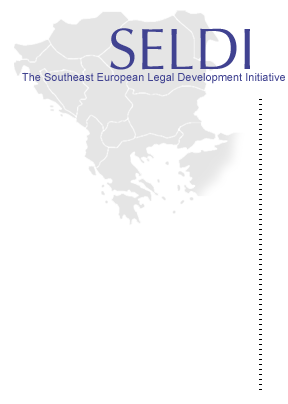

Regional Corruption Monitoring Indexes
The 2002 Regional Corruption Monitoring Indexes, produced within the framework of the Southeast European Legal Development Initiative, were officially presented at a press-conference held on April 4, 2002, at the Center for the Study of Democracy, SELDI Executive Secretariat.
The regional monitoring of corruption is being held for a second year in a row as part of the Coalition Building and Monitoring for Anti-Corruption in Southeast Europe project. The Regional Corruption Monitoring System (RCMS), introduced by SELDI in 2001, is based on the experience and methodology of the monitoring system of corruption developed and implemented on a quarterly basis since 1998 in Bulgaria by the anti-corruption initiative Coalition 2000 (www.online.bg/coalition2000).
The RCMS is the first ever region-wide corruption diagnostics carried out simultaneously in Albania, Bosnia & Herzegovina, Bulgaria, Croatia, Macedonia, Romania, and Yugoslavia on the basis of a uniform methodology. The regional monitoring is a unique effort which has not been undertaken in the region before as it measures the link between public values and the actual spread of corruption in the countries. It allows a comparison of the public sectors most affected by corruption thus providing objective data for the design of regional anti-corruption policy instruments.
The main goal of the comparative analysis contained in the RCMS is to show the public significance of the problem of corruption and the extent to which corruption has penetrated into the various sections of these societies. This monitoring system allows citizens in the region to voice their concern about the corruption pressure exercised over them. Thus, as public support is an indispensable component in any anti-corruption campaign, the RCMS is a key instrument for empowering the public and generating civic involvement in anti-corruption efforts.